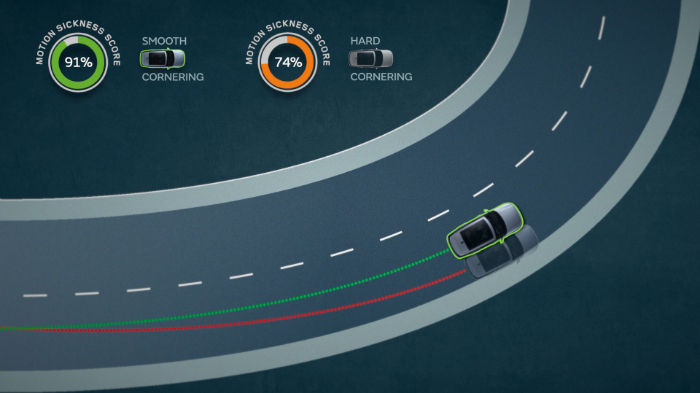Jaguar Land Rover is pioneering software aimed at reducing motion sickness by adapting the driving style of future autonomous vehicles.
Detailing the development of the software, JLR explained that during the first phase of the project, a personalized ‘wellness score’ was developed, which has now implemented into the company’s self-driving software.
According to JLR, the software combines 20,000 real-world and virtually-simulated test miles to calculate a set of parameters for driving dynamics to be rated against. Advanced machine learning then ensures the car can optimize its driving style based on data gathered from every mile driven by the autonomous fleet. It’s claimed this technology can then be used to teach a vehicle how to drive autonomously, while maintaining the individual characteristics of each model, be it a sports car or off roader.
Motion sickness, which JLR said can affect more than 70% of people, is often caused when the eyes observe information different to that sensed by the inner ear, skin or body – commonly when reading on long journeys in a vehicle. Using the new system, acceleration, braking and lane positioning – all contributory factors to motion sickness – can be optimized to avoid inducing nausea in passengers.
As a result of the project, JLR hopes that its engineers are now able to develop more refined advanced driver-assistance systems (ADAS) features, such as adaptive cruise control and lane monitoring systems.


